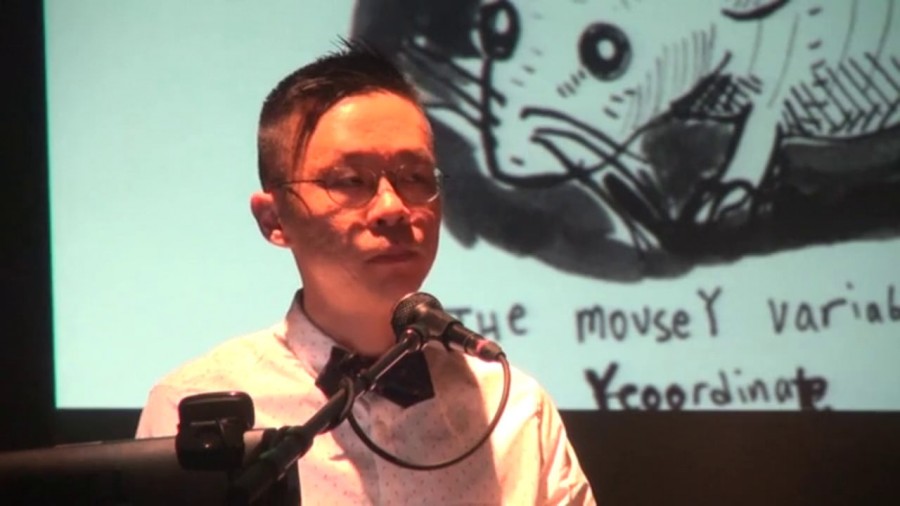It’s such an honor to speak among my heroes and inspiration, and thank you Lauren and Golan for having me here, and all of the panelists. I’d like to speak about the School for Poetic Computation and especially on the issue of gender diversity, especially focusing on the students’ diversity.
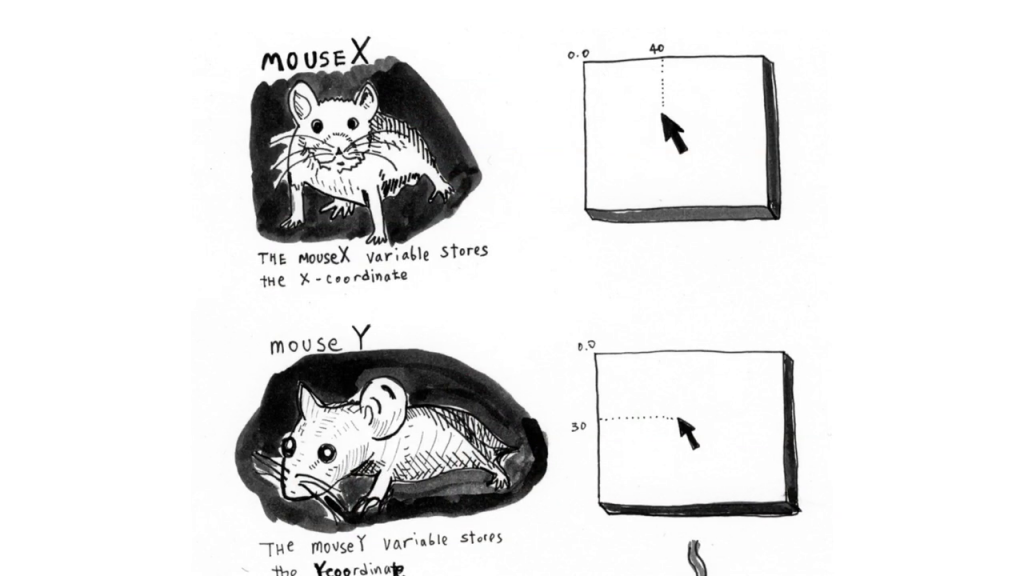
I’m an artist and illustrator, a hacker. My contribution to p5 has been mostly for illustrating some of the basic concepts through comics that Lauren asked me to do a year ago, and I was producing these comics for a book that we’ll be publishing through the Studio in the near future.
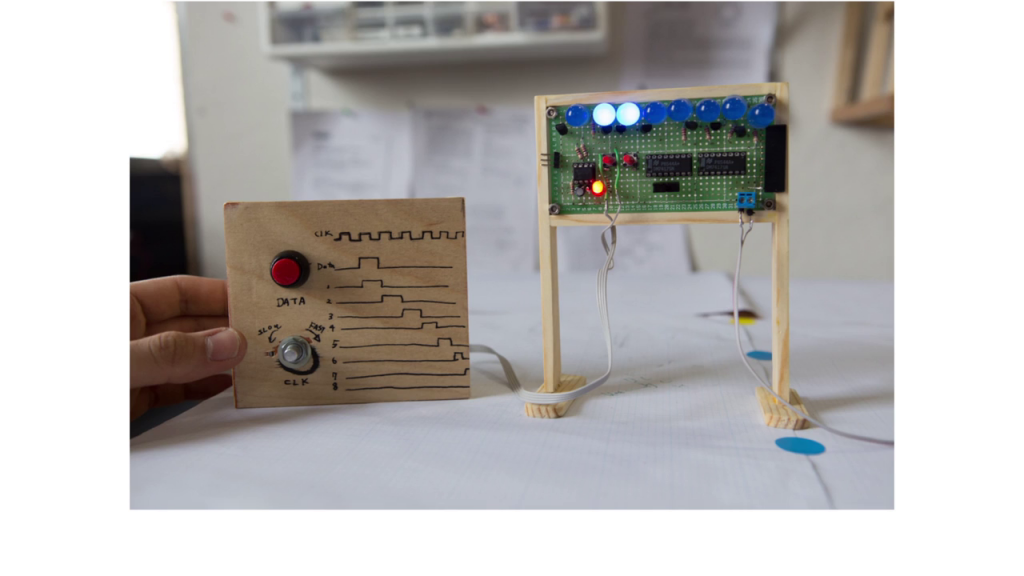
As an artist, I’m a hacker and a maker of small computational devices. This is a shift register made out of D‑type flip flops. I like to make these very simple hand-made computers for a few reasons. I’m inspired by the potentials of computation outside of programming. I like to diversify the way that we work with technology, and I like to think of it as an art object, and an installation where we rethink and reinvent computation, especially focusing on alternative possibilities of the computer as not driven by war agendas or corporate mass production.
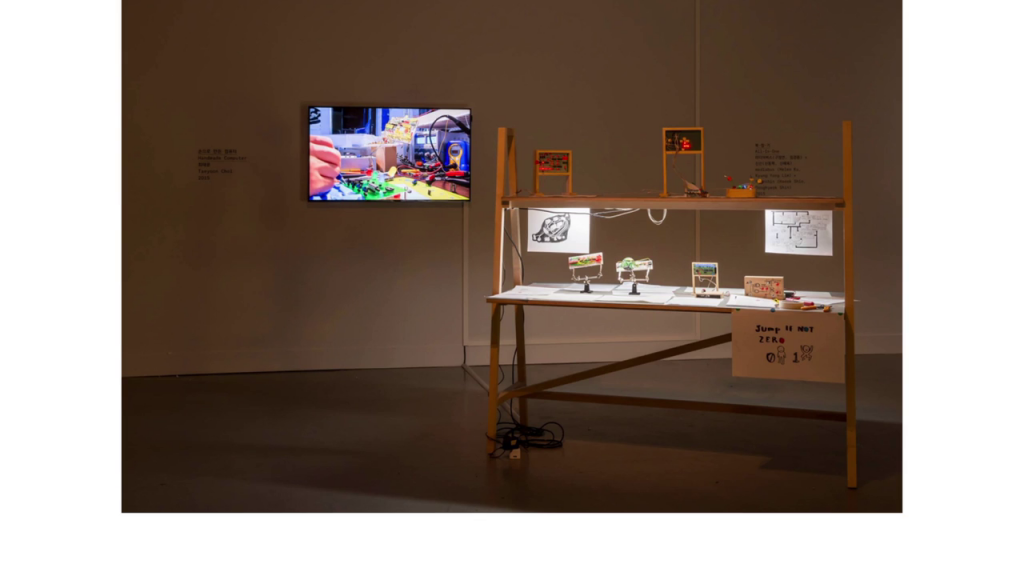
This is a hand-made 8‑bit computer that’s installed as an art object in a museum. A lot of this is about demystifying technology to a person like me who comes from a fine arts background, so looking at the beauties of computation and especially the repetition and abstraction that is quite fascinating if you start to look at it.
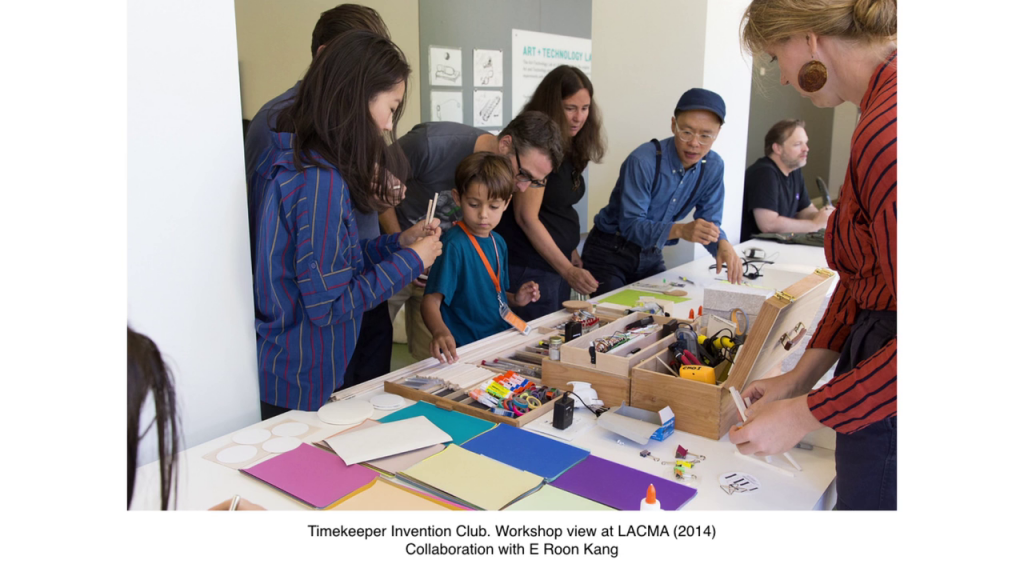
Public engagement is a very important part of my practice, so youth, adults, people who are not often at museums are invited to the projects that I do. This one is at LACMA. We were making timekeeping devices.
Today I’d like to speak about the School for Poetic Computation, which I co-founded with three other individuals who are big heroes to me, Zach Liebermann, who’s been contributing to open source through openFrameworks; Amit Pitaru, who’s a user experience designer but also a musician and an inventor; and Jen Lowe who’s a mathematician and data visualization artist.
We weren’t happy with how we were teaching at the existing universities for a few reasons, but namely it was too expensive for students, and we didn’t like the idea of introducing these amazing tools and ideas and leaving them in a wild world without depth. Part of the other reason is that we wanted a school to be a place where new ideas could take shape as opposed to a place where institutions recreate the existing ideas.
Our classes are quite unconventional. I teach binary logic and logic gates and low-level electronics. We focus on three kinds of code, functional programming, imperative language, and scripting language, and the theories, especially critical theories and aesthetics, and visual culture, and hardware, which is physical computing.
I’d like to show you a brief clip of the very first class that we held.
What’s happening is that we teach the concept of binary numbers on the very first day, and we ask students to create a game to teach other students about that the very next day, so this is a very fast process of learning and teaching. We like to think the best students are the best teachers and vice versa, so this idea of empowering students through teaching has been a very effective way of engaging difficult materials in a very integrated manner.
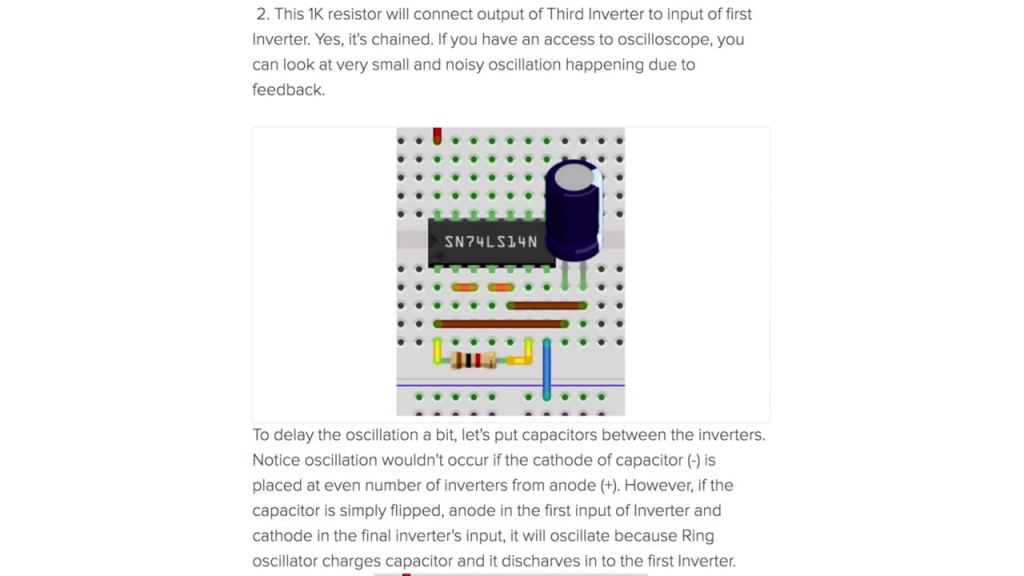
We like to open source most of our teaching materials, either code or the lectures. This is my teaching materials for logic gates. These are usually in our school repositories.
Also finance. This is something different from other schools. We release most of our financial data, and you can see how much I get paid through the past three years.
We’ve run the school four times, each time fifteen to eighteen students from all around the world, who are either engineers or artists or somewhere in between. We’ve always had issues of how to make our school more inviting for others because that was an idea of a more transparent school.
Let’s go back to 2013. We had 54 applicants, which was quite surprising, and I think that was due to a large amount of publicity that we got as we were starting out. But the number of applicants did not matter so much because there was a lot of misconception about the school. A lot of people thought we were a code boot camp, but we’re like an art school that uses code. We accepted fifteen students, and this was the ratio between two genders.
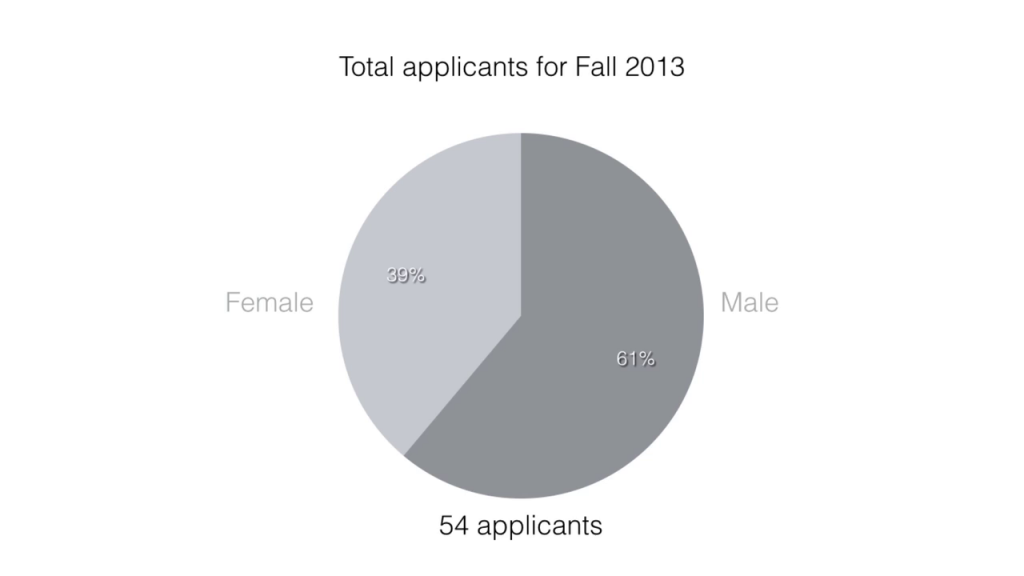
This term, two years later, we had 31 applicants and believe me it was much harder to choose the students this time because there was a whole self-selection process that happened with the applicants. We had 62% male applicants, we accepted at about 52% male and 48% female, however what happens is that it ends up being 44% and 56% male. There’s a lot of instances where the female students that we accepted were not able to come for a variety of reasons, because we charge tuition, which keeps us independent from any branding, and also just schedule-related issues.
This allowed me to think about these two worlds that we are living between. So, the art world. The Guerrilla Girls are these historic feminist activist performance artists who did amazing data visualizations of the inequalities of the art world through very analog posters.
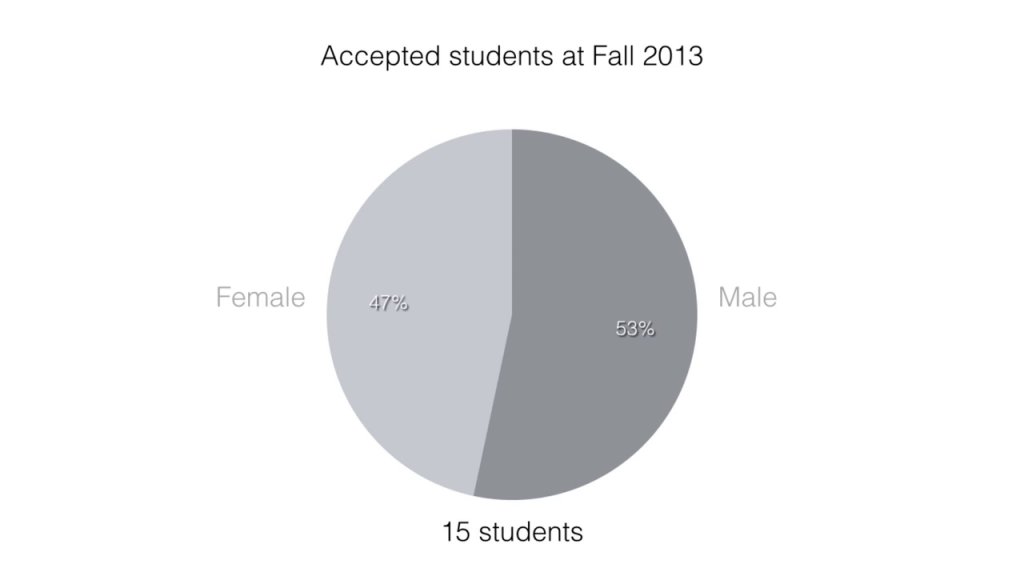
This is a very recent work just this year. They recreated a poster they made in 1985 of the woman artists having a solo show at the major museums and commercial galleries in New York. In 2015 the numbers didn’t change so much. So this does not look so good.
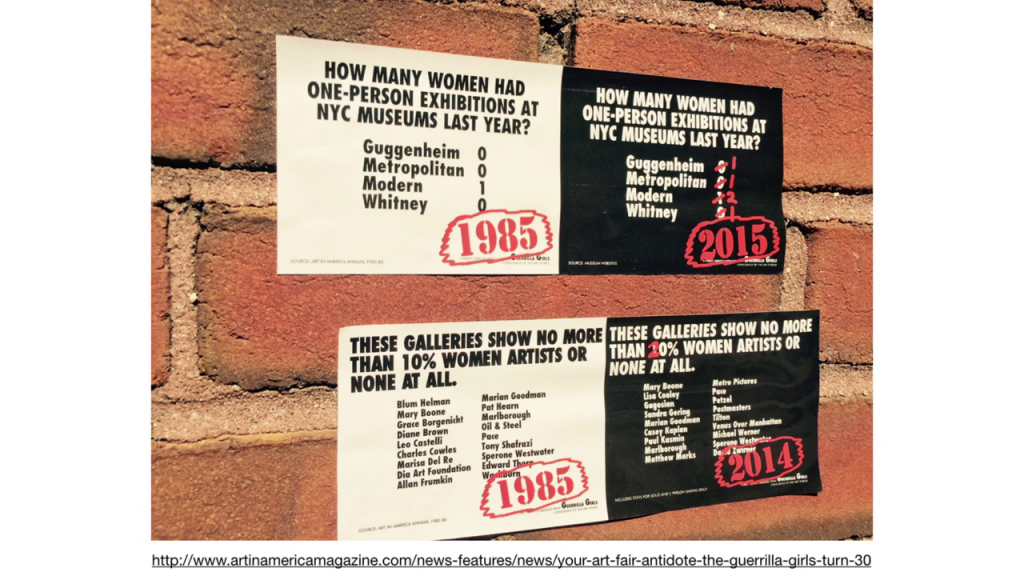
And the tech world as we all know is this really unbalanced world in terms of education and also in terms of industry. This is Tracy Chou’s ongoing research about how many woman employees are in the tech startup world. She has a repository where she keeps updating these numbers as new companies open their data, and you can see that the last commit was just twelve days ago. Just for example, Dropbox has 275 employees and only 26 are female engineers.
On that note, the world is really difficult when we think about diversity. The question that was given to us was “what kind of future do you want to see?” The future that I do not want to see is the future of a very long tale of otherness, which is what Haiyan Zhang, who co-founded OpenIDEO talks about.
The Long-Tail is subtle and harder to spot – it’s moments like being diverted to home economics classes instead of wood shop, it’s not having female engineering role models, it’s being told you look too young and too much like a girl to be taken seriously as a professional, it’s finding out you’re not being paid quite as much as your male colleagues.
Haiyan Zhang, “On Gender Inequality and Being ‘Other’ ”
This is the world that she grew up [with] and had to resist as a female engineer. The world that we want to see through the school is empowering our students to teach and lead their own schools. Rachel Uwa, who is an alumni from our first class, started her own school in Berlin. We encourage everyone in this room and your community to start a small organization for yourself.
I’d like to end at the larger question of audiences, and new audiences, and building the commons. We started this approach of working with the local communities in Brooklyn and Bushwick to introduce what we love to a wider audience. This is the Poetic Science Fair:
We invite the local community to hack with us and [it’s] an opportunity for our students to meet and teach younger folks and older folks in that same manner.
Thank you so much for having me, and please support our school by coming to the school or making your own school and having a community of schools all around us.
Further Reference
Overview page at the Studio for Creative Inquiry’s web site.
Taeyoon posted an edited transcript of his presentation at Medium.
